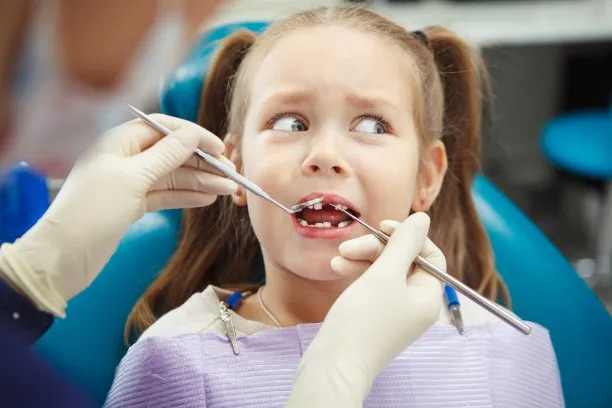Summary: Tooth extraction can be a daunting experience, but understanding the importance of proper techniques and aftercare can greatly enhance the healing process. This article explores four significant aspects of tooth extraction: the importance of trained professionals, effective pain management strategies, guidelines for post-extraction care, and recognizing potential complications during recovery. By adhering to proper techniques and aftercare advice, individuals can ensure a smoother recovery and minimize the risk of complications. The essential techniques and aftercare not only promote optimal healing but also contribute to overall oral health in the long term.
1. The Importance of Trained Professionals

When it comes to tooth extraction, the expertise of a trained dental professional cannot be overstated. Dentists and oral surgeons possess the knowledge and skills necessary to perform the extraction safely and efficiently. Their training equips them to assess the situation, determine the best extraction method, and execute the procedure with precision.
A skilled practitioner can also identify any underlying issues that may complicate the extraction process. This might include signs of infection, bone density problems, or other dental concerns that could affect healing. By addressing these issues before the extraction, the risk of complications during and after the procedure can be significantly reduced.
Additionally, a trained professional will employ proper techniques, including anesthesia administration and the extraction method, to ensure patient comfort and safety. Overall, relying on a skilled practitioner plays a critical role in the success of the extraction and the healing process that follows.
2. Effective Pain Management Strategies
Pain management is a crucial aspect of the tooth extraction process. Effective pain control not only enhances the patient’s comfort during and after the procedure but also supports optimal healing. Dentists typically use local anesthesia to numb the area around the tooth being extracted, minimizing pain responses during the procedure.
After the procedure, patients may experience varying degrees of discomfort. Therefore, dentists often recommend over-the-counter pain relievers, such as ibuprofen or acetaminophen, to help manage this pain. In some cases, more potent prescription medications may be necessary. Patients should adhere to their dentists guidance regarding pain management to ensure they are effectively alleviating discomfort.
Coping strategies, such as ice packs applied to the outside of the face or gentle mouth rinses with warm salt water, can also provide relief. Comfort and pain control play a significant role in enhancing patient experiences and assisting with the healing process post-extraction.
3. Guidelines for Post-Extraction Care
Proper aftercare following tooth extraction is essential for optimal healing and the prevention of complications. Patients are advised to follow specific guidelines to promote healing in the extraction site. For instance, avoiding vigorous rinsing or sucking actions for the first 24 hours is crucial, as these actions can disturb the blood clot that forms in the socket.
Soft food options are often recommended in the initial days after extraction. This includes items like yogurt, mashed potatoes, and smoothies, which are less likely to disturb the extraction site. Staying hydrated is equally important, but patients should avoid using straws, as the suction can dislodge the blood clot.
Monitoring the extraction site for signs of infection, excessive bleeding, or unusual pain is also a key aspect of aftercare. Should any of these issues arise, it is imperative for patients to contact their dental professional for advice. Following the post-extraction care guidelines will help ensure a smooth recovery and minimize the risk of complications.
4. Recognizing Potential Complications During Recovery
While many patients heal without issues following a tooth extraction, it is important to be vigilant about potential complications that may arise. Common concerns include dry socket, which occurs when the blood clot fails to form or becomes dislodged, leaving nerves and bone exposed. Symptoms of dry socket include severe pain and a foul odor from the extraction site.
Infection is another potential complication that may arise post-extraction. Signs to look out for include increasing pain, swelling, fever, or pus at the extraction site. Should any of these symptoms occur, it is critical to contact a dental professional promptly, as untreated infections can lead to more severe health issues.
Other complications may include nerve damage or prolonged bleeding. While these occurrences are rare, being aware of them allows patients to act quickly if they notice something unusual. Understanding the potential problems enables individuals to ensure appropriate measures are taken for a safe recovery period.
Summary:
Proper techniques and aftercare are vital components of the tooth extraction process that significantly influence healing outcomes. Choosing a trained professional ensures the extraction is performed safely, while effective pain management aids recovery. Comprehensive aftercare guidelines help patients understand the necessary steps to promote healing, and recognizing potential complications helps ensure any issues are addressed swiftly. By focusing on these key areas, individuals can support their oral health and ensure a smoother recovery.
This article is compiled by Vickong Dental and the content is for reference only.
Vickong Dental
Vickong Dental is a large medical group established in Hong Kong in 2008 by professors from well-known medical universities in Guangdong and Hong Kong, as well as medical doctors from key national '985' universities (including Master's supervisors and senior professors). The chain of branches brings together expert dentists with PhDs and Master's degrees from Hong Kong and Mainland China, committed to providing high-quality dental treatment.
"Vickong Dental Practices the University Motto of 'Healing and Serving Society,' with a Stable Operation for Sixteen Years. It Has Been honored with Hong Kong Enterprise Leaders's Choice,' and is a Global Trusted Implant Center for the Nobel Implant System. Recommended by Hong Kong Metro Broadcast and Guangdong Television, it Serves Customers from Over Thirty Countries and Regions, Gaining the Trust and Favor of Citizens from the Guangdong-Hong Kong-Macau Greater Bay Area and Surrounding Cities.

Thousands of customers' unanimous praise
The most recognized and highly recommended dental service by customers in the Guangdong-Hong Kong-Macau Greater Bay Area
We Ensure You Receive Detailed Care and Attention Here
Hong Kong standards, Shenzhen prices, Your Trusted English-speaking dentists

Vickong Dental Medical-Grade Instrument Disinfection Process
Vickong Dental Medical-Grade Instrument Disinfection Process

Vickong Dental Chain: A Warm and Comfortable Environment for Treatment






Appointment Hours

Q&A
Why choose Vickong Dental?
Vickong Dental practices the university motto 「Medicine to Benefit Society」, with each branch bringing together highly qualified dentists with doctoral and master’s degrees from Hong Kong and the Mainland, and has maintained seventeen years of steady operation。Recipient of 「2024 Hong Kong Enterprise Leaders Brand」, 「2025 Hong Kong Enterprise Leaders Brand」, a Nobel Biocare Global Trusted Implant Center, and a brand recommended by Metro Radio Hong Kong and Guangdong TV。
To date, we have served customers from more than thirty countries and regions,earning exceptionally high word-of-mouth recognition and trusted recommendations from residents across the Guangdong-Hong Kong-Macao Greater Bay Area and surrounding cities
We have eight major branches in Zhuhai、Shenzhen,and a consultation and service assurance center in Hong Kong,so you can book a free consultation at any time for any questions,which is very reassuring.
If I do not accept the quotation after the CT scan, will I be charged??
No! As long as the actual treatment has not started, you will not be charged any fees.
Will there be any additional charges during the treatment process?
No, there won’t be any additional charges. Before treatment begins, we will clearly explain the treatment plan and its corresponding fees. Only after the patient agrees and signs the consent form will we proceed with the dental service.
Can I pay in Hong Kong dollars?
Yes. Vickong Dental accepts payment in Hong Kong dollars. The amount will be converted based on the exchange rate of the day, and the applicable rate will be clearly communicated to you in advance.
Can I reschedule my appointment at any time?
Yes. Please contact us via **WeChat** or **WhatsApp** as early as possible, providing your original appointment time and details, along with your preferred new date and time slot for rescheduling.













